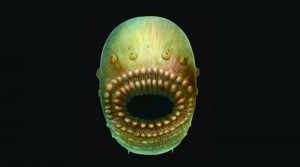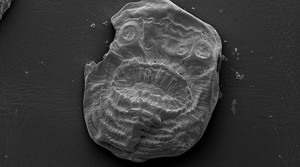A joint scientific team from Russia, Britain, Germany and believe they might have discovered the missing evolutionary link in central China. The scientists found the fossilized remains of a microscopic ‘bag-like’ creature which probably ate and excreted using its mouth. could be a key missing link in the evolutionary chain, according to a new study. Published in the Nature journal, the new study describes microfossils known as Saccorhytus that were found in the central China Shaanxi province – at one time a shallow sea.
Academics from the UK and China say the tiny fossils may be an early example of a ‘deuterostome’, which eventually evolved from the sea bed into a wide range of species including vertebrates. “We think that as an early deuterostome this may represent the primitive beginnings of a very diverse range of a very diverse range of species, including ourselves,” said University of Cambridge Professor Simon Conway Morris, who was involved in the finding. The creature, named Saccorhytus because of its sack-like features, lived approximately 540 million years ago. Authors of the newly published study suggest it is one of the earliest steps on the road of human evolution.
source: RT.com
Ask me anything
Explore related questions






